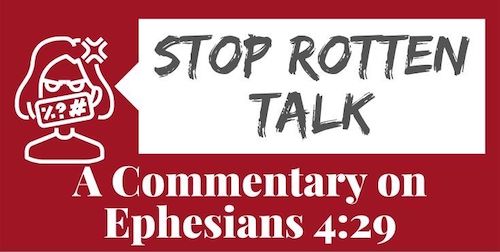
Cooling Down Discourse
Whew–my mouth burns today after a survey of my facebook feed. I need a sip of something cool to drink after some of the heated rhetoric I took in.
Social media sizzles with conflict these days. These conflicts overflow into relationships, families and churches. A pandemic, racial unrest, elections in the U.S., disrupted governments in other countries all turn up the heat in conversations. I have witnessed un-civil discourse among families, friends and members of the body of Christ.
John 17 records Jesus’s prayer for all believers. In John 17:20-23, the Savior prays for the unity of all believers. Why? Because their unity testifies to the world that the Father sent Him and loves them–that they might believe in Him.
Jesus didn’t pray for uniformity, but he did pray for unity for the sake of our testimony to the world. We can’t take a time-out from unity for the current crises. The world needs our testimony of unity more than it needs our opinions.
So, here are some basic elements that preserve unity when we interact with others:
• Love and respect. Keep focused on a person’s good qualities and your history of positive relationship when you are talking with them. If there is no positive relationship, perhaps you don’t need to talk with them about controversy.
• The right time and place. Pray for wisdom and wait for the right time if you intend to interact on a contentious topic.
• A mutual desire to interact. Both parties in a polite conversation must share a desire to talk. Some who post on social media don’t want opposing views aired.
• A commitment to learn and understand. Approach a person with a genuine desire to learn and understand their viewpoint, not simply a desire to air your opinion.
• Common ground. As you listen to people, look for common ground in your perspectives.
Christian brothers and sisters are usually diverse. They differ economically. They probably read different news sources and come from different political viewpoints. They likely trust different people. In light of these things, it may not be a good idea to interact regarding certain topics on social media. “Keep on scrolling” might be a good motto. Talking about politics or the latest COVID controversy may not be helpful.
Does that mean that we are stuck talking about shallow topics like the weather? No, instead of going into more shallow waters, we need to go deeper into the biblical issues underlying controversies.
Consider these points:
• Search underlying biblical truth. With our faith family we can examine what the Bible says about the core issues underlying our opinions. What does the Bible say about gender, compassion, truth, the role of government, freedom and obedience? We can agree that the Bible is true. Let’s examine what it says.
• Investigate challenging paradoxes. Sometimes answers aren’t clear cut. Biblical values may seem to contradict. We ought to wrestle honestly with the balance between compassion and justice and acknowledge the difficulty of speaking the truth and speaking in love.
• Pray for the Holy Spirit to apply biblical truth in our heart and in the hearts of others. The Holy Spirit applies truth. If we usurp his role, we annoy our brothers and sisters; at worst some of our church family may start to look to us for truth instead of to God. Let’s ask God to work in our own heart and in others‘ hearts to own and live out biblical values in the 21st century.
To turn down the heat on discussions, take a cool SIP of deeper discourse—Search biblical truth, Investigate paradoxes, and Pray. A sip of this cool drink will turn down the heat in a conversation and open the door to future dialogues with men and women you care about.
Photo: “Cold Water” by Anders Adermark is licensed under CC BY-NC-ND 2.0




